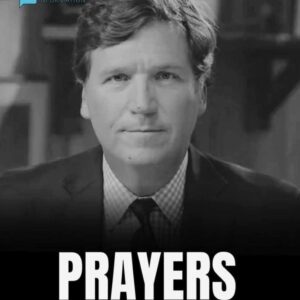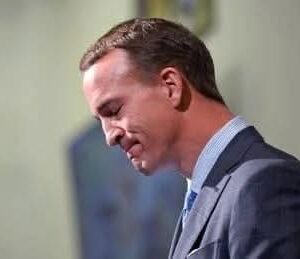In a move that has sent shockwaves through both the Republican and Democratic parties, a close associate of President Donald Trump has raised significant concerns about the impact of the president’s latest tariff policies. The Republican senator, typically aligned with Trump’s agenda, has broken ranks with the president, publicly criticizing the newly imposed tariffs and warning of the economic consequences they could bring, not only to the U.S. economy but also to the political landscape. This rare dissent has sparked a wider debate within the GOP about the long-term implications of protectionist policies, which are becoming increasingly controversial even among those who have supported Trump in the past.
The senator, known for his libertarian views and skepticism of government intervention in markets, has been outspoken about his opposition to tariffs for months. His concerns are centered around the economic disruptions these measures could cause, as well as the potentially devastating political fallout for Republicans if the tariffs continue. Speaking to reporters this week, he suggested that the administration’s protectionist stance could lead to “political decimation” for the GOP. He cited historical examples where similar policies had disastrous consequences, such as the tariffs imposed by President William McKinley in 1890, which led to a significant loss of seats for the party in the national elections. He also pointed to the Smoot-Hawley Tariff Act of the early 1930s, which he argued contributed to a loss of congressional power for nearly six decades. According to him, the impact of tariffs isn’t just economic—it’s deeply political as well.
The Political and Economic Consequences of Tariffs
In his impassioned remarks, the senator made it clear that tariffs should be viewed not just as a trade issue, but as a tax on American consumers. “Despite arguments to the contrary, Americans know tariffs are a tax they are going to have to pay,” he said, calling for a more cautious approach to international trade. He emphasized that taxes should not be imposed by a single individual, highlighting concerns over the concentration of power in trade decisions and the potential for negative economic consequences. The senator’s remarks echoed a growing frustration within the GOP about the direction of U.S. trade policy and its long-term effects on both domestic markets and the party’s political future.
In addition to his comments in the media, the senator took action in the Senate, where he was one of four Republican senators who voted in favor of a resolution aimed at reversing Trump’s 25 percent tariffs on imports from a key ally. Joining him in this effort were Senators Lisa Murkowski of Alaska, Susan Collins of Maine, and Mitch McConnell of Kentucky. This rare act of defiance against Trump’s trade policies reflected a broader shift within the GOP, as some lawmakers sought to distinguish between tariffs levied on adversarial nations and those imposed on close allies. They argued that countries like Canada—one of the U.S.’s largest trading partners—should not face the same economic penalties as geopolitical rivals like China or Russia.
The vote marked a rare victory for Senate Democrats, who have consistently opposed the president’s tariff policies. By siding with the minority party, these Republican senators handed Democrats a significant legislative win, further exacerbating divisions within the GOP. The senator, in his remarks, expressed frustration with the administration’s handling of international trade, stating that the U.S. was not at “war with Canada,” an ally that is one of the largest buyers of American goods. The senator’s comments resonated with many who argue that the tariffs are damaging to the U.S. economy, especially given the close economic ties with Canada.
The Growing Split Within the Republican Party
The split within the Republican Party over Trump’s tariffs highlights the increasing tension between protectionist and free-market factions. While Trump’s tariffs have been championed by some as a means to restore U.S. manufacturing and reduce trade imbalances, others within the GOP are warning that the consequences could be far-reaching. The senator’s break from the administration signals a deeper rift within the party, as more Republicans express concern about the economic costs of protectionist policies and their impact on U.S. consumers.
This growing divide has been fueled by concerns over the rising costs of goods, the potential for inflation, and the disruptions to global supply chains caused by the tariffs. For many in the business community, particularly those with ties to international trade, the uncertainty created by the tariff policies has been a significant challenge. Companies that rely on global supply chains are facing higher costs, and consumers are seeing increased prices for everyday goods. These economic pressures are particularly concerning in an election year, as Republicans fear the political fallout from rising inflation and sluggish economic growth.
The senator’s vocal opposition to the tariffs also underscores the broader ideological divide within the GOP. As a libertarian-leaning member of the party, he has long been an advocate for free markets and limited government intervention. His criticisms of Trump’s trade policies reflect a broader philosophical disagreement over the role of government in shaping economic outcomes. While Trump’s populist brand of conservatism has embraced protectionist policies as a way to “put America first,” libertarians like the senator believe that free trade and open markets are the keys to long-term prosperity.
Economic Growth and Job Creation Amid Trade Tensions
Despite the growing criticism of Trump’s tariffs, the U.S. economy has continued to show signs of resilience. According to the latest employment report, the U.S. added 228,000 jobs in March, surpassing expectations and signaling that the labor market remains strong. The private sector added 209,000 jobs, with notable gains in sectors like healthcare and retail. However, the report also highlighted a slight uptick in the unemployment rate, which stood at 4.2%. This modest increase was attributed to revisions in the number of jobs added in previous months, with the total number of jobs in January and February being adjusted downward.
While the job numbers were encouraging, economists are still grappling with the impact of trade tensions on inflation and economic stability. Nancy Vanden Houten, lead U.S. economist at Oxford Finance, warned that tariffs could push inflation closer to 4% in the coming year. Rising prices, coupled with the uncertainty caused by tariffs, could strain consumers and businesses alike. This combination of economic pressures has led some to question whether the benefits of protectionism outweigh the costs, especially in a globalized economy where trade relationships are complex and interdependent.





